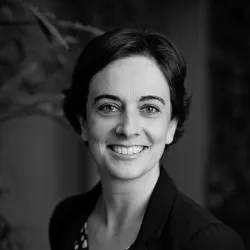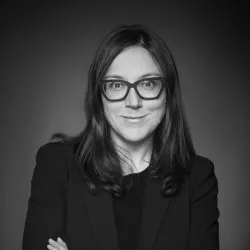
Alumni Newsletter: Reflections from the Editors

“it was the spring of hope, it was the winter of despair”
Dickens, C. A Tale of Two Cities
Separated by an ocean but linked by technology, we are truly honoured to inaugurate the Pierre Elliott Trudeau Foundation Alumni Newsletter. It was with great excitement that we accepted this responsibility when the Foundation’s President Pascale Fournier presented us with this wonderful initiative.
The invitation could not be more timely, as the COVID-19 pandemic forces us to fundamentally rethink our ways of communicating, caring, and belonging. How can the ever-growing Pierre Elliott Trudeau Foundation community remain vibrant and connected through time and space? How can its members continue to engage collectively in imagining better futures based on critical and inclusive knowledge of the present and the past? From the outset, we acknowledge that it is from a privileged position that we are able to engage in this project as co-editors for the new alumni newsletter, as we are co-writing these remarks from the comfort of our homes in Norway and in Canada where we are employed as tenured university professors, with access to basic public services and the technologies necessary to communicate during confinement.
The COVID-19 crisis has made injustices more visible while exacerbating the sharp inequities that follow the fault lines of preexisting colonial, racist, sexist, ableist, and class-based structures. This is at the core of Danielle’s piece and short film Inclinations, which exposes the intensification of racialized precarity on marginalized populations while celebrating “crip irreverence and joy”. Along similar lines, Rita’s The Gift of History positions the stories of Black people at the centre of enquiry, tracing the contours of racism and injustice across generational and temporal lines. It is this matrix of past, present, and future temporalities intrinsic to COVID-19 that we seek to invite reflection on through this newsletter. Significantly, the transformative and subversive potential of this crisis also pervades many of the contributions you will find here. In the words of Margarida, “What kind of a future can we create if we re-imagine our common existence in the light of our shared aspirations to enable a world that promotes life, happiness, and inclusion?” Instead of fantasizing a “back to normal” mentality, with the social exclusions, colonial domination, and ecological destruction it entails, let us imagine a post-COVID world as “something more sustainable and just”, echoing Danielle’s words. We invite you to keep these questions in mind while you dive into Lisa’s A Gaze I Return, a poetic intervention that envisions alternative ways of seeing and looking at the world; an image that urges us to slow down and consider this encounter with a face that is not us. In Levinasian fashion, philosopher Achille Mbembe urges us to grant others, who are different from ourselves, the humanity we demand for ourselves. This ethical imperative should be at the core of how to rethink collectivity, relationality, and compassion in post COVID-19 life.
Circling back to Dickens’ words in our epigraph, the voices included in this newsletter articulate, in various ways, the paradoxical nature of this historical juncture where a sense of fear and despair coexists with the possibility of hope and transformation. In Robert’s and in Marie-France’s words, the “spirit of collaboration” and the collective engagement of students, faculty, and administration against current difficulties shows how institutions such as the university could also become places where power and knowledge are redistributed for the common good.
- Libe & Sophie



